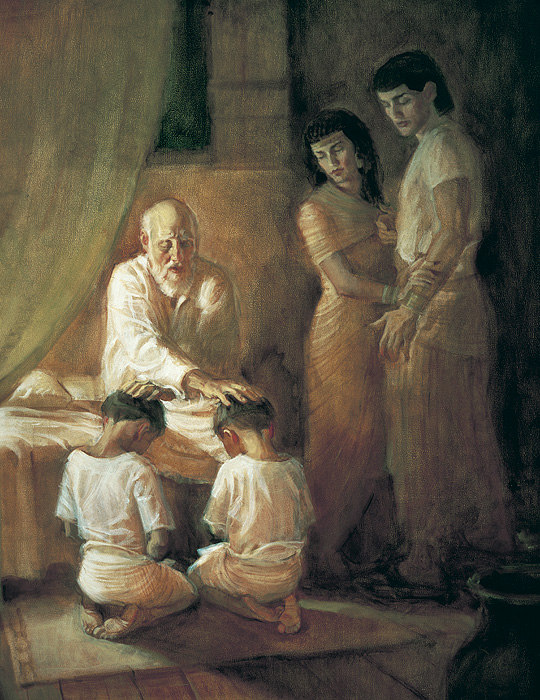why don't you get an honest job? Isn't it embarrassing to have to rely on the charity of others? I don't this "shnorring as any different than what goes on at bmg...A little harsh, don't you think? I certainly do.
And yet, the question remains: Is it appropriate to charge for Torah? While Rabbi Slifkin certainly has the right to demand donations to access content he has created, is excercising that right...right?
At first glance, the answer would be "No." After all, the famous Mishnah in Avot (4:5) reminds us,
Yet, the issue is far more complex than it might initially seems. Rabbi Ovadia Bartenura, commenting on that passage in the Mishnah writes,רבי צדוק אומר, אל תעשם עטרה להתגדל בהם, ולא קרדם לחפור בהם. וכך היה הלל אומר, ודאשתמש בתגא, חלף. הא למדת, כל הנהנה מדברי תורה, נוטל חייו מן העולםRabbi Zadok says, do not make [the words of Torah] into a crown to enlarge yourself with them, nor a axe to dig with. And so Hillel would say, "He who uses the crown, will perish." From this we learn that anyone who benefits from the words of Torah, takes his life from the world.
Bartenura's comments reflect the nuance inherent in the issue. On one hand, the Mishnah clearly castigates someone who takes money to teach Torah. Yet, who then is supposed to teach our children? If no one can take money, and everyone has to feed their family, who's going to teach Torah? So, he draws a line between fundamental teaching and everything else. The Torah must be free. But the rebbe also watches the kids. He tells them jokes. He watches them during recess. Even the Torah you might have thought was included - the cantillation - that's extra too. It sounds a little like today's airline fares: the base fare is for the trip, but if you want a blanket, drink, luggage, seat belt, or oxygen mask, those are extra. (You almost expect one day soon, that the flight attendant will instruct you before your flight, "In the event of a loss of cabin pressure, simply slide your credit card through the reader, and an oxygen mask will descend over your seat." But I digress.)ולא תלמוד תורה כדי לעשות ממנה מלאכה שתתפרנס בה, כמו קרדום לחפור בה, שהעושה כן מועל בקדושתה של תורה וחייב מיתה בידי שמים כמי שנהנה מן ההקדש. ומלמדי תינוקות נוטלין שכר שימור התינוקות בלבד, שמשמרין אותן שלא יפשעו ויזיקו, ושכר פיסוק טעמים, שאין הרב חייב לטרוח וללמד לתלמידים פיסוק הטעמים. אבל שכר לימוד אסור ליטולAnd one is not permitted to use the study of Torah as a manner from which he supports himself, like an axe one digs with, for one who does so robs from the sanctity of the Torah, and is liable to be punished with death from the heavens, just like one who benefits from property sanctified for us in the Temple. And those who teach young children take renumeration only for the watching of the children, for they watch that the [children] neither damage nor cause negligent harm. And, they also receive renumeration for teaching the cantillation [of the Torah], for a rabbi is not obligated to toil and teach his students the cantillation.
What emerges is the theoretical principle: "Torah is free",and it's application in the real world: "No it's not." Someone has to pay to support experts who can invest their time and energy to provide spiritual support, guidance and instruction.
(Please note, this is not, by any means, a thorough analysis of the topic. Rambam, who had a "real job" - don't you just love that term - famously castigated rabbis who took money to lead their communities. This prompted an extensive response from rabbinic scholars who, surprise, surprise, earned their living from their Torah knowledge.)
This, I believe, is where Rabbi Slifkin comes into our picture. Sure, his Torah should be free. And it is. Feel free to send him an email. But if you want to download it in electronic form; if you want if formatted in easy-to-read PDF form; if you want it in the English language - then you're going to have to pay for it. Because if he's going to find the time to reseach, study and write the pieces, someone's going to have to support his ability to do so.
Full disclosure: there's a personal element to my attitude on this issue. I too, for many years, took money to teach Torah. (Actually, the Torah was free. I took money to schedule the davening, counsel members, run programs, create flyers. All that cost money. The Torah was gratis.) And I continue to do so today.
I give three weekly shiurim in Yad Binyamin: two in English, and a third in Hebrew on Shabbat. For two of the shiurim I ask for a "suggested" tuition of fifty shekel a month for participants. It's really a very loose thing; people who cannot pay are invited and welcomed to join (although perhaps some don't because they'd rather not "freeload", even if invited to come for free). Others, I have heard, would like to come but choose not to because philisophically, the believe that the shiurim should be free of charge. Still, periodically, I struggle with the dillemma of whether to charge or not. Is it right for me to ask people to pay for the Torah that I teach?
I charge for a few reasons:
1. The money certainly helps. Sure, it's pocket money, but it negates a trip or two to the ATM each month, and that's no small deal. And, I invest time and energy to both prepare and deliver the shiurim, and one of the shiurim meets during regular work hours.
2. I think that people today often value what they pay for. Whether we like it or not, sometimes we devalue things that we get for free. A free blog - like this one - is fine. You're probably not even reading what I've written carefully. More like skimming. That's what people do on the web today. But if you've paid for one of Rabbi Slifkin's articles, there's a good chance that you'll take the time to read it more carefully than a free blog post.
3. My parshah shiur is always available for free, in recorded form (even as a podcast!) No, I couldn't resist giving myself a free plug.
4. Finally, if you've paid for a month of shiurim, there's a really good chance that you won't skip the shiur when something comes up. And, with adults, something always comes up. I believe truly that the shiur has endured, perhaps with a smaller attendance - because people pay to participate. Paying for something is often a good incentive to use it.
Ironically, while I honor Rabbi Slifkin's right to charge for his articles, I personally am not willing to pay for them. Which I guess, is exactly the point. He has the right to ask me for money. And I have the right to say, "No thank you."












